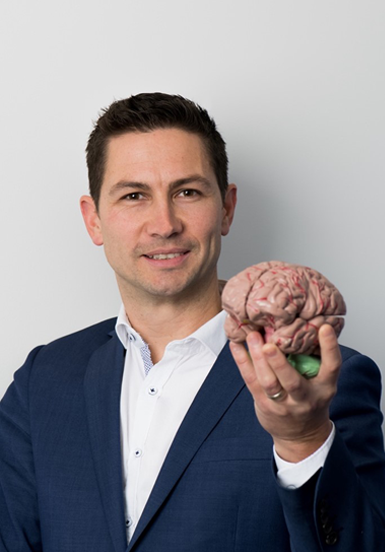$3.5million for Deakin health researchers from NHMRC Ideas grants
Research news
Researchers from Deakin University’s Faculty of Health have received funding totalling more than $3.5 million in 2023 National Health and Medical Research Council (NHMRC) Ideas grants.
Dr Jennifer Browne, Professor Alyssa Barry, Associate Professor Tim Silk and Dr Nandita Vijayakumar will each lead projects that aim to improve the health and wellbeing of people in Australia and abroad, in areas spanning Aboriginal and Torres Strait Islander health, youth mental health, malaria treatment and ADHD.
The NHMRC’s Ideas Grant scheme supports innovative research projects of one to five years addressing specific research questions. The scheme funds researchers at all career stages across all areas of health and medical research.
Executive Dean for the Faculty of Health, Deakin Distinguished Professor Rachel Huxley, says Deakin’s successful projects demonstrate the broad and transdisciplinary nature of the Faculty’s research.
‘Deakin is recognised as a leader in innovative, high-quality health and medical research that translates into real-world applications. Our focus on translation means we provide the evidence needed to inform programs and policies that make a real difference to health and wellbeing,’ Deakin Distinguished Professor Huxley says.
‘Congratulations to our four successful Chief Investigators and their teams on this success – I look forward to seeing how this vital work progresses.’
Deakin’s successful projects are:
The commercial determinants of Aboriginal and Torres Strait Islander health and wellbeing: building the evidence and co-designing action - $1,223,516.60
Dr Jennifer Browne, School of Health & Social Development/Institute for Health Transformation

This project aims to identify the commercial drivers that influence Indigenous health and wellbeing. Despite the substantial harms generated by unhealthy industries in many Indigenous communities, both in Australia and worldwide, few studies have worked with Indigenous peoples to understand their perspectives or to co-design solutions. This vital work will provide a world-first examination of how private companies and their actions (such as the supply and marketing of harmful products, and lobbying) impact Indigenous peoples’ lives. Led by Dr Browne, the multidisciplinary research team will undertake an assessment of Indigenous peoples’ exposure to outdoor and online marketing of unhealthy food, drinks and alcohol, and the impact of these on health. The team will co-design policy recommendations to mitigate the negative impacts and enhance the potential positive impacts of commercial activity.
The study’s findings will support improved government and private sector accountability regarding Indigenous health.
Predicting the emergence and spread of drug resistant malaria parasites - $1,352,353.90
Professor Alyssa Barry, School of Medicine/Institute for Mental and Physical Health and Clinical Translation (IMPACT)

The emerging resistance of the human malaria parasite ‘Plasmodium falciparum’ to available antimalarial treatments is an ongoing threat to the control and elimination of malaria in many parts of the world.
While Artemisinin Combination Therapies (ACTs) were introduced in the early 2000s, growing resistance to ACTs and its partner drugs threatens to reverse gains made against malaria in the last two decades.
Capitalising on Professor Barry’s and the research team's established epidemiological research and surveillance programs in Papua New Guinea this project will focus on the spread of the drug-resistant malaria parasite.
Using extensive blood sample collections and a parasite biobank, the cross-disciplinary team will use a combination of genomic epidemiology, functional genomics and classical genetics to understand the genetic determinants underlying this malaria mutation and how it has emerged and is spreading in this region.
The role of epigenetics in brain developmental trajectories and clinical outcomes in ADHD - $587,349.20
Associate Professor Tim Silk, School of Psychology/Centre for Social and Early Emotional Development (SEED)

Attention-deficit/hyperactivity disorder (ADHD) is one of the most common child mental health conditions. Children with ADHD can present in very different ways, but it’s still not known who will fare well or poorly, or the best ways to improve the outcomes of those affected.
Combining neuroimaging with the emerging field of epigenetics (the molecular ‘switches’ that turn genes on or off, up or down) is revealing how our environment and epigenetic variation can modulate the impact of genotype on neurobiological processes.
This research, led by Associate Professor Tim Silk, will examine how environmental factors interact with epigenetic processes and influence brain development and pathways to improve clinical outcomes for ADHD.
The multidisciplinary project will provide fundamental knowledge regarding the associations between epigenetic mechanisms, varying environmental factors and brain development that may mediate pathways to better clinical outcomes for youth with ADHD.
The outcomes and significance of this work have the potential to make transformative contributions to understanding the underpinnings of ADHD, to improve prediction about the course of ADHD, and to ultimately support an individualised management approach.
Novel insights into adolescent stressors: uncovering brain biomarkers and mental health consequences to inform intervention efforts - $415,490.85
Dr Nandi Vijayakumar, School of Psychology

Mental health problems in young adults are at historically high levels, with severe negative consequences that persist across the life course. 'Gen Z' Australians have faced a unique set of psychosocial stressors during their adolescent years, such as the uncertainty caused by the COVID-19 pandemic and the pervasiveness of social media. While these adolescent stressors clearly increase the risk for mental health problems during young adulthood, our understanding of which specific stressors pose the greatest risk and their mechanisms of action is poor.
This research will combine unique methodological innovations with existing longitudinal dataset from the Child to Adult Transition Study to identify the contemporary adolescent experiences that represent critical intervention targets.
Led by Dr Nandita Vijayakumar, the researchers will capitalise on recently published brain growth charts and use longitudinal neuroimaging data to advance knowledge of how stressors act via the developing brain to impact future mental health. They will pioneer the application of leading epidemiological methods to neuroimaging data, to pinpoint the optimal time to intervene on stressors during adolescence to support both brain development and mental health.
The text of this article is licensed under the Creative Commons Attribution (CC BY) 4.0 International license. We'd love for you to share it, so feel free! Please note that images, videos, graphics and logos are not covered by the CC BY license and may not be used without permission from Deakin University or their respective copyright holder. If you have any questions please contact researchcomms@deakin.edu.au.
Thanks for reading! You can find more stories like this at www.deakin.edu.au/research/research-news-and-publications. We ask that Deakin University and individuals are appropriately credited and that you include links back to this website. Quotes in this article can be extracted for other articles provided individuals are appropriately credited and you include a link back to the article URL.
Share this story

Key Fact
NHMRC Ideas Grants support researchers at all stages of their careers for projects of one to five years.
